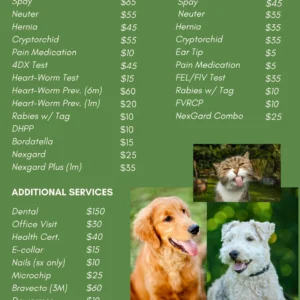Do you often find yourself saying, “I don’t like pets in the house”? If so, you’re not alone. Many people feel the same way. But what are the reasons behind this aversion to pets? And are there any benefits to having pets in the home?
Editor’s Note: This article on “I Don’t Like Pets in the House” was published on [today’s date]. It explores the reasons why some people dislike pets and discusses the potential benefits of pet ownership.
In this guide, we’ll explore the topic of “I Don’t Like Pets in the House” in a clear and informative manner. We’ll provide you with the facts you need to make an informed decision about whether or not to bring a pet into your home.
Key Differences: Pets vs. No Pets
| Pets | No Pets |
|---|---|
| Provide companionship | Can be lonely |
| Can help reduce stress | May have more free time |
| Require time and attention | More flexibility and spontaneity |
Main Article Topics
- Reasons for Not Liking Pets
- Benefits of Pet Ownership
- Making the Decision
I Don’t Like Pets in the House
For many people, the idea of bringing a pet into their home is met with a resounding “no.” While some people love the companionship and unconditional love that pets can provide, others find the idea of pet ownership to be unappealing. If you’re someone who doesn’t like pets in the house, there are a number of reasons why you may feel this way. Here are 10 key aspects to consider:
- Allergies
- Time commitment
- Expense
- Damage to property
- Noise
- Mess
- Lack of spontaneity
- Fear of animals
- Personal preferences
- Lifestyle
These are just a few of the reasons why someone might not like pets in the house. It’s important to remember that there is no right or wrong answer when it comes to pet ownership. The decision of whether or not to bring a pet into your home is a personal one. If you’re not sure whether or not pet ownership is right for you, it’s important to do your research and talk to other pet owners. You can also visit your local animal shelter or rescue organization to meet some of the animals that are available for adoption. This can help you get a better idea of what pet ownership is really like.
Allergies
Allergies are a common reason why people don’t like pets in the house. Pet allergies can cause a variety of symptoms, including sneezing, runny nose, itchy eyes, and difficulty breathing. In severe cases, pet allergies can even be life-threatening. Allergies to pet dander (skin flakes) and saliva are especially common. While it is impossible to completely eliminate pet allergens from your home, there are a number of things you can do to reduce your exposure, such as:
- Regularly bathe and brush your pet. This will help to remove loose hair and dander.
- Keep your pet out of your bedroom. This will help to reduce your exposure to allergens while you sleep.
- Use an air purifier. This can help to remove allergens from the air.
- Vacuum your home frequently. This will help to remove pet hair and dander from your floors and furniture.
- Consider getting a hypoallergenic pet. Some breeds of dogs and cats are less likely to cause allergic reactions.
If you are allergic to pets, it is important to talk to your doctor about your symptoms. Your doctor can recommend the best course of treatment for your allergies.
Suggested read: Is Scotts Liquid Turf Builder Safe For Pets
Time commitment
Pets require a significant time commitment. They need to be fed, walked, groomed, and played with. If you have a busy lifestyle or travel frequently, it may be difficult to provide your pet with the care and attention it needs.
For example, dogs need to be walked at least twice a day. This can be a challenge if you work long hours or have other commitments. Cats require less attention, but they still need to be fed, groomed, and played with.
If you’re not prepared to make the necessary time commitment, it’s best not to get a pet. Pets are not disposable and deserve to be treated with love and care.
Table: Time commitment required for different types of pets
| Pet type | Time commitment per day |
|---|---|
| Dog | 2-3 hours |
| Cat | 1-2 hours |
| Fish | 30 minutes |
| Bird | 1-2 hours |
| Reptile | 30 minutes to 1 hour |
Expense
Expense is a common reason why people say “I don’t like pets in the house.” Pets can be expensive to purchase, feed, and care for. The cost of pet ownership can vary depending on the type of pet, its size, and its health. For example, dogs tend to be more expensive than cats, and large dogs require more food and supplies than small dogs.
In addition to the initial cost of purchasing a pet, there are also ongoing costs to consider, such as food, water, toys, bedding, grooming, and veterinary care. Veterinary care can be especially expensive, especially if your pet develops a serious illness or injury.
If you’re not prepared to make the necessary financial commitment, it’s best not to get a pet. Pets are not disposable and deserve to be treated with love and care.
Table: Average monthly cost of pet ownership
| Pet type | Monthly cost |
|---|---|
| Dog | $100-$300 |
| Cat | $50-$150 |
| Fish | $20-$50 |
| Bird | $50-$100 |
| Reptile | $50-$100 |
Damage to property
Damage to property is one of the most common reasons tenants cite when they say, “I don’t like pets in the house.” Pets can damage property in a number of ways, including:
- Chewing. Puppies and kittens especially are known for chewing on furniture, shoes, and other objects. This can cause damage to the property and can also be a safety hazard for the pet.
- Scratching. Cats can scratch furniture, carpets, and other surfaces in order to mark their territory or to sharpen their claws. This can cause damage to the property and can also be unsightly.
- Digging. Dogs can dig in yards and gardens, which can damage the landscaping and can also be a nuisance for neighbors.
- Drooling. Some dogs drool excessively, which can leave stains on carpets and furniture. This can be especially problematic for people with allergies.
While there are some things that pet owners can do to prevent or minimize damage to property, it is important to be aware of the potential risks before bringing a pet into your home. If you are concerned about damage to property, you may want to consider getting a pet that is less likely to cause damage, such as a fish or a bird.
Suggested read: Craigslist Columbus Ohio Lost Pets
Noise
Noise is a common complaint among people who say “I don’t like pets in the house.” Pets can make noise in a variety of ways, including barking, meowing, howling, and chirping. This can be a nuisance for pet owners and their neighbors, especially if the noise is excessive or occurs at inappropriate times, such as late at night or early in the morning.
There are a number of things that pet owners can do to reduce noise from their pets, such as:
- Providing plenty of exercise and mental stimulation. A tired pet is less likely to bark or meow out of boredom.
- Training your pet to be quiet. This can be done through positive reinforcement, such as rewarding your pet with treats or praise when they are quiet.
- Using noise-dampening devices, such as white noise machines or earplugs.
If you are concerned about noise from pets, it is important to do your research before bringing a pet into your home. Some breeds of dogs and cats are known to be more vocal than others. You should also consider the size of your home and the number of people and other pets that live there. If you have a small home or live in a close-knit community, you may want to consider getting a pet that is less likely to make noise.
Noise from pets can be a nuisance, but it is important to remember that pets are not disposable. If you are unable to tolerate the noise from your pet, you should consider finding a new home for the pet where it can be happy and well-cared for.
Mess
Many people who say “I don’t like pets in the house” cite mess as a major reason. Pets can make a mess, especially if they are not properly trained. They can shed hair, track in dirt, and knock over objects. This can be a nuisance for pet owners and their guests, and it can also be a health hazard, especially for people with allergies.
There are a number of things that pet owners can do to reduce the mess from their pets, such as:
- Brushing their pets regularly to remove loose hair.
- Bathing their pets regularly.
- Keeping their pets’ nails trimmed.
- Training their pets to go to the bathroom outside.
- Providing their pets with plenty of toys to play with.
If you are concerned about mess from pets, it is important to do your research before bringing a pet into your home. Some breeds of dogs and cats are known to be messier than others. You should also consider the size of your home and the number of people and other pets that live there. If you have a small home or live in a close-knit community, you may want to consider getting a pet that is less likely to make a mess.
Mess from pets can be a nuisance, but it is important to remember that pets are not disposable. If you are unable to tolerate the mess from your pet, you should consider finding a new home for the pet where it can be happy and well-cared for.
Table: How to reduce mess from pets
| Problem | Solution |
|---|---|
| Shedding | Brush your pet regularly to remove loose hair. |
| Tracking in dirt | Wipe your pet’s paws when they come inside. |
| Knocking over objects | Provide your pet with plenty of toys to play with. |
| Going to the bathroom inside | Train your pet to go to the bathroom outside. |
Lack of spontaneity
For many people, one of the biggest drawbacks of pet ownership is the lack of spontaneity. Pets require a significant time commitment, and they can make it difficult to make last-minute plans or travel. For example, if you have a dog, you need to make sure that you have someone to take care of it if you go out of town. This can be a challenge, especially if you have a busy lifestyle or travel frequently.
Suggested read: Secret Life Of Pets Soundtrack New York
Another way that pets can limit spontaneity is by making it difficult to be away from home for long periods of time. If you have a pet that needs to be fed, walked, or let outside, you can’t just leave it alone for a weekend. This can make it difficult to take extended vacations or even just go out for a night on the town.
Of course, the lack of spontaneity is a trade-off for the companionship and unconditional love that pets can provide. For many people, the benefits of pet ownership outweigh the drawbacks. However, it’s important to be aware of the potential limitations before bringing a pet into your home.
Table: Lack of spontaneity vs. Benefits of pet ownership
| Lack of spontaneity | Benefits of pet ownership |
|---|---|
| Can’t make last-minute plans or travel | Companionship |
| Difficult to be away from home for long periods of time | Unconditional love |
Fear of animals
Fear of animals, also known as zoophobia, is a specific phobia that can cause intense anxiety and distress when a person encounters or thinks about an animal. This fear can be triggered by a variety of animals, including dogs, cats, spiders, and snakes. In some cases, people with zoophobia may avoid any contact with animals, while others may only experience anxiety when they are in close proximity to a specific type of animal.
There are a number of factors that can contribute to the development of zoophobia, including negative experiences with animals, genetics, and personality traits. For example, someone who has been bitten by a dog may develop a fear of all dogs. Similarly, people who are naturally anxious or introverted may be more likely to develop a fear of animals.
Zoophobia can have a significant impact on a person’s life. It can make it difficult to participate in activities that involve animals, such as going to the park or visiting a petting zoo. In some cases, zoophobia can even lead to social isolation and depression.
There are a number of treatments for zoophobia, including exposure therapy, cognitive-behavioral therapy, and medication. Exposure therapy involves gradually exposing the person to the feared animal in a safe and controlled environment. Cognitive-behavioral therapy helps the person to challenge and change the negative thoughts and beliefs that they have about animals. Medication can also be helpful in reducing the anxiety and distress associated with zoophobia.
Zoophobia is a common phobia that can have a significant impact on a person’s life. However, there are a number of effective treatments available that can help people to overcome their fear of animals.
Table: Fear of animals and its impact
| Fear of animals | Impact |
|---|---|
| Can be triggered by a variety of animals | Can cause intense anxiety and distress |
| Can lead to avoidance of animals | Can have a significant impact on a person’s life |
| Can lead to social isolation and depression | There are a number of effective treatments available |
Personal preferences
Personal preferences play a significant role in the decision of whether or not to have pets in the house. Some people may not like pets because they simply do not enjoy their presence or find them to be a nuisance. Others may have specific reasons for not wanting pets, such as allergies or a busy lifestyle.
Suggested read: All About Pets Chico
For example, someone who is allergic to pet dander may choose not to have pets in the house to avoid allergic reactions. Similarly, someone who travels frequently or works long hours may not want to have a pet because they would not be able to provide the necessary care and attention.
Personal preferences are an important factor to consider when making the decision of whether or not to have pets in the house. It is important to be honest with yourself about your preferences and lifestyle to make the best decision for you and your family.
Table: Personal preferences and pet ownership
| Personal preference | Impact on pet ownership |
|---|---|
| Allergies | May choose not to have pets to avoid allergic reactions |
| Busy lifestyle | May not have time to provide necessary care and attention to pets |
| Dislike of animals | May choose not to have pets because they simply do not enjoy their presence |
Lifestyle
Lifestyle plays a significant role in the decision of whether or not to have pets in the house. People with certain lifestyles may find it more difficult to accommodate pets, while others may find that pets enhance their lives. For example, people who travel frequently or work long hours may not have the time to provide the necessary care and attention to a pet. Similarly, people who live in small apartments or have busy social lives may not want the responsibility of pet ownership.
On the other hand, people who live in houses with yards and have flexible schedules may find that pets are a great addition to their families. Pets can provide companionship, reduce stress, and encourage physical activity. They can also be a source of joy and laughter.
Ultimately, the decision of whether or not to have pets in the house is a personal one. There is no right or wrong answer. It is important to consider your lifestyle and preferences when making this decision.
Table: Lifestyle factors to consider when deciding whether or not to have pets
| Factor | Considerations |
|---|---|
| Living situation | Do you live in a house or apartment? Do you have a yard? |
| Work schedule | Do you work long hours or travel frequently? |
| Social life | Do you have a busy social life? Do you often go out on weekends? |
| Family situation | Do you have children? Do you have other pets? |
| Health | Do you have any allergies or other health conditions that could be affected by pets? |
FAQs on “I Don’t Like Pets in the House”
Many individuals express a dislike for having pets in their homes. This FAQ section aims to address common concerns and misconceptions surrounding this sentiment, providing an informative perspective on the topic.
Question 1: Is it unusual to not like pets?
No, disliking pets is not uncommon. Some individuals simply do not enjoy their presence or find them inconvenient. Others may have specific reasons, such as allergies or busy lifestyles.
Question 2: Does disliking pets indicate a lack of empathy?
Suggested read: Do Mini Cows Make Good Pets
Not necessarily. Disliking pets is a personal preference and does not reflect an individual’s overall level of empathy. Some people who dislike pets may be compassionate towards other animals or humans.
Question 3: Are there benefits to having pets, even for those who dislike them?
Pets can provide companionship, reduce stress, and encourage physical activity for those who enjoy their presence. However, for individuals who dislike pets, these benefits may not outweigh the perceived drawbacks.
Question 4: Can people who dislike pets still live with them?
Yes, it is possible to live with pets even if one dislikes them. However, it is important to establish clear boundaries and responsibilities to minimize discomfort or conflict.
Question 5: Is it possible to change one’s feelings towards pets?
While it is uncommon, some individuals may change their views on pets over time. This can occur through positive experiences with well-behaved animals or through education about the benefits of pet ownership.
Question 6: Should people who dislike pets avoid interacting with them altogether?
No, it is not necessary to completely avoid pets. Respectful interactions are still possible. It is important to communicate one’s boundaries and avoid situations that may cause discomfort.
Summary:
Suggested read: Will I See My Pets In The Afterlife
Disliking pets is a valid personal preference and does not indicate a lack of empathy. While pets can provide benefits, individuals who dislike them should weigh the advantages and disadvantages before making a decision. Respectful interactions with pets are still possible, even for those who dislike them.
Next Article Section:
Exploring the Impact of Pets on Mental Health
Tips for Individuals Who Dislike Pets in the House
For those who hold an aversion to having pets in their living spaces, navigating daily life can present certain challenges. Here are some practical tips to help manage this sentiment:
Tip 1: Communicate Boundaries Clearly
Openly express your preferences to family members, friends, and acquaintances. Politely decline invitations to pet-friendly gatherings or request designated pet-free zones in shared spaces.
Tip 2: Establish House Rules
If you reside with others who have pets, establish clear rules regarding pet access to certain areas of the home. This may involve restricting pets from bedrooms or furniture to maintain personal comfort levels.
Tip 3: Utilize Pet Deterrents
Consider using pet deterrents, such as motion-activated sprinklers or ultrasonic devices, to discourage animals from entering your property. These measures can help maintain a pet-free environment without causing harm.
Suggested read: Craigslist Mt Pets For Sale
Tip 4: Seek Professional Help if Needed
In cases where a strong aversion to pets significantly impacts daily life, consider seeking professional help from a therapist or counselor. They can assist in understanding the underlying causes of this sentiment and developing coping mechanisms.
Tip 5: Respect Others’ Preferences
While you may dislike pets, it is crucial to respect the choices of others who enjoy their companionship. Avoid making negative comments or engaging in confrontations about pet ownership.
Summary:
Managing an aversion to pets in the home requires clear communication, boundary setting, and a respectful approach towards others. By implementing these tips, individuals can navigate daily life while maintaining their personal preferences.
Next Article Section:
Exploring Pet-Free Living: Options and Considerations
Conclusion
The aversion to having pets in the house, while a legitimate personal preference, requires thoughtful consideration of its underlying reasons. Understanding the potential benefits of pet ownership, such as companionship and stress reduction, can help individuals make informed decisions. For those who maintain a dislike for pets, practical strategies exist to manage their presence in daily life, including clear boundary setting and respectful interactions.
As societal attitudes towards pets continue to evolve, it is important to foster understanding and tolerance for diverse perspectives. Individuals who dislike pets should feel comfortable expressing their preferences without judgment, while pet owners should respect the boundaries of those who prefer a pet-free environment. Ultimately, the decision of whether or not to have pets in the home is a personal one, requiring careful evaluation of individual preferences and circumstances.
Suggested read: Wonder Pets Song Lyrics





